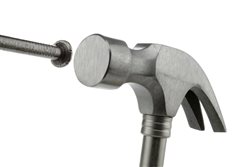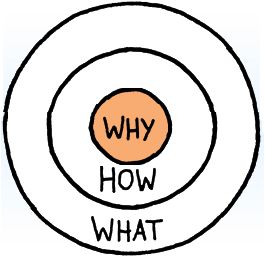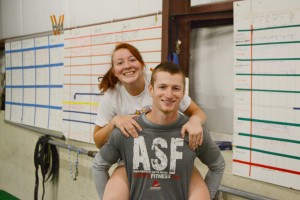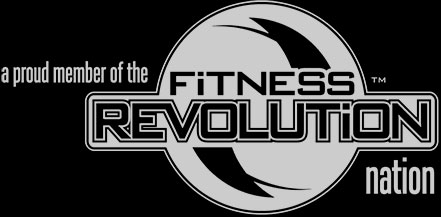Introduction: The point of this post is not to demean anyone or make anybody feel like they are being talked down to. The general public seems to have a distorted view of what we as Strength and Conditioning Coaches actually do, so the point of this is to help clear up some of the misconceptions.
Misconception 1: That the craziest and coolest looking drills/tools make my kid faster.
Check out this training video:
How many of you watched the video and thought, “wow, look at Adrian Peterson! He’s jumping over bags, doing circles around cones, and doing some crazy quick footwork drills using a ladder. Certainly, if Adrian Peterson is doing it then my kid must too!”. I get it; parents and kids are totally inundated with commercials or YouTube videos showing various athletes running with parachutes, running through ladders, or doing cone drills and you think that’s what speed and agility training is. This couldn’t be further from the truth. As coaches, we start with a simple concept that we want to coach that day. If it’s a speed day, we start with whether it will be linear or lateral based movements. We then plan which skills (acceleration, deceleration, change of direction, etc.) will be emphasized during the session. After the planning phase, we design a drill that we think will best emphasize the selected movement patterns and skills. We don’t start with a cool looking drill and work our way backwards, we start with movements and skills and plan the drill to fit those needs. Sometimes these drills require the use of various tools (such as cones) and sometimes they don’t. Again, we never plan a day thinking that we will use a certain piece of equipment. These tools serve a purpose within the drill to help emphasize whatever the movement pattern is. Sure parachutes look cool, but does it even serve much of a useful purpose? Maybe it does, maybe it doesn’t. It totally depends on the day (by the way, you’ll probably never see parachutes at ASF for the majority of kids). I wouldn’t use a parachute run to help a k id get quicker. Sure, a table saw looks cool. It’s got all the bells and whistles and makes a bunch of noise, but I wouldn’t use it to pound in a nail. The same thing applies to the tools we use in the training facility. They serve a useful purpose within the confines of a certain drill and they are only used when needed to help emphasize a skill.
id get quicker. Sure, a table saw looks cool. It’s got all the bells and whistles and makes a bunch of noise, but I wouldn’t use it to pound in a nail. The same thing applies to the tools we use in the training facility. They serve a useful purpose within the confines of a certain drill and they are only used when needed to help emphasize a skill.
Misconception 2: Strength coaches are hard-nosed, no nonsense people that are there to make my kid work his or her butt off.
We are strength coaches, not drill sergeants. I can’t tell you how many times we’ve heard, “my kid just needs pushed.” Granted, some kids do lack an internal drive to work hard and they do need pushed, but not to extreme lengths. Our job isn’t to push kids to the brink of exhaustion every time they come in. Going to exhaustion does not mean a kid necessarily got better that day. All it means is they are now exhausted and probably don’t want to come back and train the next day. You’ve all heard how the old saying goes: “Well back in my day we did (fill in the blank).” Yes, back in the day before we knew anything about training for performance, people were pushed to extreme lengths. Now ask yourself, did that extreme level of training make you a better athlete? Probably not.
Misconception 3: Our purpose is to make your child a great athlete.
Let’s be brutally honest for a second, 99.99% of athletes will never make a dime from playing sports. The odds are not in your favor. All of the coaches at ASF grew up dreaming of playing pro sports and we’re all pretty decent athletes, yet here we are, not a dime made from our athletic exploits. With that in mind, we will do everything in our power to help your child become the best athlete THEY can be, not the best athlete you want them to be. I don’t have children so I can’t speak from experience, but I do understand that you want your child to be successful so badly that you’ll do anything for them. Instead of defining athletic success by what AAU team you make, or if you get a D1 scholarship, why not define it as being the best YOU are capable of? Sports and athletics should be fun, not stressful and full of unrealistic expectations and demands.
Misconception 4: That we are only there to train your child.
Yes, training for athletics is a big part of what we do, but it is far from the only thing. As mentioned before, the likelihood of your child being a pro athlete are slim to none, so instead of focusing solely on training we put a huge emphasis on nurturing your child as a whole person. You may see us talking and having a good laugh during breaks, and you may think I’m not paying for laughs, I’m paying for results! The fact is, that’s part of the training, it’s part of developing your child as a whole person, not just an athlete. If I can help them develop a healthy relationship with physical activity that will last a lifetime, I’ll consider myself successful. If we can help them develop friendships with kids they likewise would have never met before, why not? We don’t define success as coaches by whether or not an athlete got bigger or faster. Sure, these are end products we are looking for. They are part of  the “what‘s” to our “why‘s” (side note-amazing book: Start With Why-Simon Sinek).
the “what‘s” to our “why‘s” (side note-amazing book: Start With Why-Simon Sinek).
There are three questions we ask as coaches:
1). Did they have fun today?
2). Did they learn something today (life lesson or sports related)?
3). Do they want to come back and train again?
If we can answer yes to these three questions, then we are successful coaches. We want to develop a culture of learning, fun, and appreciation for physical activity that will last a lifetime. Believe me, your child athletic career will be over before you know it. Allow them to enjoy it while they can, and let us teach them some cool stuff along the way.
Misconception 5: That we have all of the fitness answers.
The human body is the most dynamic and complex tool on the planet. Think about some of the amazing feats accomplished by humans: running a 100 meter dash in under 10 seconds, dead-lifting 1000 pounds, Bruce Lee could do two finger push-ups. Yes, two finger push-ups (look it up on YouTube, I’m not making this up). The study of the human body has been around for a very short period of time. Not even close to long enough to learn all there is to know. With every passing day there is a new study that reveals something that we didn’t know yesterday. With that in mind, it is nearly impossible to have all of the right answers. There are some things that we know to be true but not much. What we do as coaches is stick to our principles when training yet remain humble enough to know that everything we do today may not be true tomorrow.
Misconception 6: That we are just meatheads who train, train, and train some more.
When I explain what I do to family and friends I usually get a response along the lines of, “Dude, that’s awesome. You get to workout all day.” False folks. I’m extremely happy if I can train three days a week and for a lot of successful coaches, three training sessions a week is on the high end. A lot of the top professionals in this industry will tell you that it’s tough to get in training sessions. If we aren’t training others, there is a very good chance we are doing some sort of research/studying. As previously mentioned, this field is so dynamic that it requires us to stay on top of the latest information. Also, we all have personal lives and other interests outside of training. For me, I love to be outside, travel, and socialize. I’m not a Reds fan, but it’s hard to beat going to a baseball game with friends on a nice spring/summer day. I’ll take every opportunity I can get to travel to a new place and learn as much as I can about their culture. Believe it or not, there is a lot more going on “upstairs” than just thoughts of when I can get my next bench press session in.
Misconception 7: Strength coaching is a job, not a profession.
This one is frustrating. It’s frustrating because a lot of the issues are self imposed. We’ve all been to a training center and seen the trainers who just don’t seem to care. The ones that are on their cell phones while working with clients, or they just seem like they would rather be anywhere else. It is these individuals that give the rest of us a bad name. It is very easy to lump all coaches and trainers together into one based on the poor standards that seem to held by so many in this industry. It seems that there are more facilities that condone this type of behavior than there are ones that go against that trend and act/prepare as professionals. The field of human performance is an extremely complicated one. Anyone who has earned a degree in a human performance related field can tell you that it is no easy task. It requires years of science related courses (including but not limited to chemistry, biology, and physics), as well as countless hours of hands-on, practical experience. Once you obtain your degree, you are then required to carry any number of certifications in order to practice what you’ve learned. However, the achievement of your degree and your certifications hardly prepare/make you a good coach. This field is one that requires an unwavering commitment to getting better, dedication to research, and a high level of enthusiasm for helping others get better (the latter of which is undoubtedly the most important). You must do all of this with the understanding that personal recognition and awards are extremely unlikely, and honestly, if you’re in this field for awards and recognition, you’re in the wrong field. It is a “thankless” job if you look at it through a personal recognition lens. For me , there is nothing better than getting to work with kids and adults everyday and help them get better. There isn’t an award out there that tops the feeling of making a group of middle school aged kids laugh at some corny joke all while helping them get better (and not necessarily athletically). If more trainers took this type of approach to this profession, it would only serve to elevate the entire industry. Hands down, coaching is the best job in the world!
, there is nothing better than getting to work with kids and adults everyday and help them get better. There isn’t an award out there that tops the feeling of making a group of middle school aged kids laugh at some corny joke all while helping them get better (and not necessarily athletically). If more trainers took this type of approach to this profession, it would only serve to elevate the entire industry. Hands down, coaching is the best job in the world!

